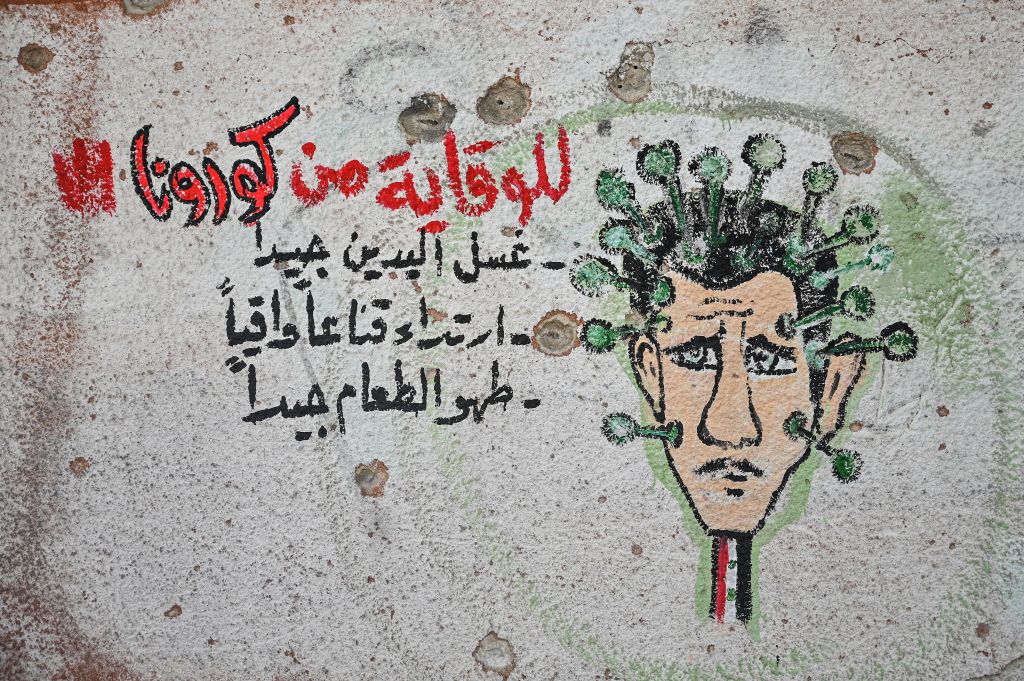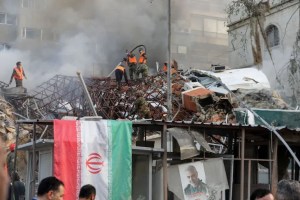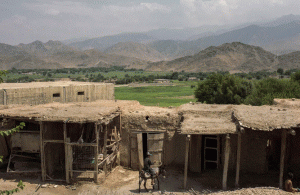With the world’s attention focused on the ongoing fight against coronavirus, Syria’s conflict rumbles on. Hundreds of thousands have died. Millions have fled. Yet this isn’t even the beginning of the end in the battle for control in this blighted country.
The reality is that the future for Syria is filled with darkness and turmoil. When people took to the streets in 2011 to demand change, the reaction from Assad’s government was unprecedented brutality. A decade on, the motivation for upheaval has only increased. The Syrian population are now in a much worse state than they were in 2011. This month has seen protests about Syria’s current economic catastrophe, in areas like as-Suwayda, a predominantly Druze area that the regime could once count as a stronghold. No longer.
Over 80 percent of the country lives below the poverty line. Syrians have been battered by nine years of civil war, the coronavirus pandemic and now an economic crisis which has seen the Syrian pound lose 50 percent of its value in May and June. The average weekly salary can just about buy a large bag of lemons. Syria’s economic catastrophe has been exacerbated by the banking collapse in neighbouring Lebanon, to which the country’s economy is intrinsically linked. The newly-enforced Caesar Act, that introduces a new wave of sanctions by the US on the Syrian government and its backers, is also taking its toll.
While Assad has demonstrated his monstrous determination to cling on, his future at the top is far from secure. So far, the minority Syrian Alawi community, of which the Assad family hails from and have long marketed themselves as their protectors against the ‘takifiris’ (extremists) from the Sunni majority, have been kept on side by the government. The Alawites are key to sustaining the regime; there isn’t an Alawite family that hasn’t given a son in this bloody war. However the economic crisis could test how unconditional their support for their favorite son is.
Thanks to the conflict, the decision of when Assad goes and who will replace him will not be made by Syrians in Syria, but almost certainly by Assad’s backer: President Putin and his inner-circle in Moscow. Russia expects the billions it has expended on helping Assad conduct his war be paid back in full and is sending in favored oligarchs to extract from the faltering Syrian economy. Room has been made for Russian companies by an ‘anti-corruption’ drive which has targeted Assad’s cousin and, thanks to nepotism, Syria’s richest man, Rami Makhlouf. Makhlouf, who is believed to control around 60 percent of the country’s economy, is thought to have a not-insignificant amount of support within the Alawi community, of which he also originates from.
Russia’s ambassador to Damascus has been given the role of ‘special Syria representative’ to battle ‘incompetence’ within the regime. This is being compared by some Syrians to the role of French High Commissioner when Syria was a French mandate. A comparison lost on many of the Western ‘anti-imperialists’ who have cheered on Russia’s colonial behavior in Syria.
This month, as food prices rocketed, the regime burned crops intended for populations in rebel-held territory. Throughout the conflict, schools and hospitals have been deliberately targeted to achieve military objectives. In Syria, the cost of living is unaffordable, but human life is very cheap. These war crimes are being committed with impunity as the UN Security Council is at a stalemate due to Russia’s veto. What’s more, anything that even smells like a foreign entanglement is politically toxic in the US, with both Trump and Biden certain to leave Assad alone during an election year. In fact, during the Democratic primaries which ran in parallel with the Idlib crisis, Pete Buttigieg was the only candidate to even acknowledge the then ongoing humanitarian catastrophe.
In the UK too, apathy is high: the prospect of chlorinated chicken on our supermarkets shelves is more talked about than the chlorine gas attacks on Syrian children. According to a poll conducted by the UK’s leading Syria-focused NGO, Syria Relief and YouGov, even at the height of the Idlib crisis in February, 72 percent of the British public weren’t aware of it. It was left to Turkey to attempt to put a halt to the targeting of civilians on its doorstep in Idlib.
[special_offer]
But this article, like the war itself, is guilty of predominantly focusing on Syria’s future in terms of who is in charge of Syria and not the ordinary people who will be impacted the most. Over half of all Syrians are either a refugee or internally displaced; the majority want to return home, but they do not believe it will be safe for them, so they have consigned themselves to a fate of living in camps for the next decade.
Ultimately, when predicting the future of any nation, you must look at the next generation. One in three Syrian children are out of school and over a million are at risk of dropping out. Parents are forced to make the agonizing choice of sending their kids to school and risking their life or keeping them at home and risking their future.
This is a war that was been waged by a state willing to win at any cost, against its own people. Through spiraling poverty, mass homelessness, decimated public services and a plummeting economy, it is the people who will continue to meet that cost for generations to come.
This article was originally published onThe Spectator’s UK website.


















